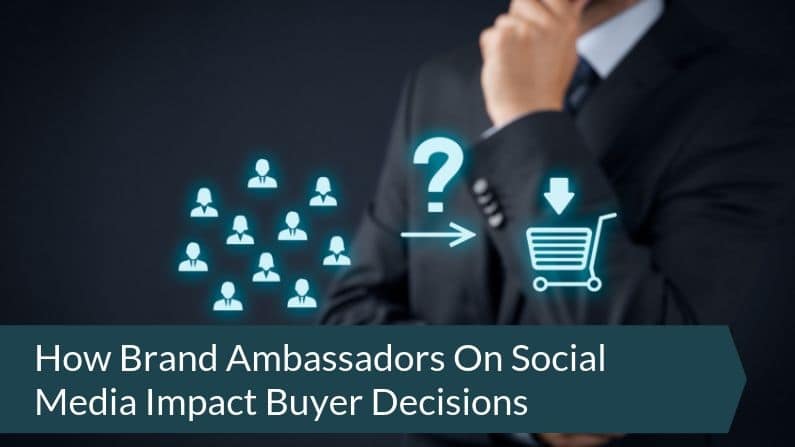The Power of Influencers With the Rise of Social Media
In this day and age, with the dominance of social media, consumer behavior is changing. Old tactics for reaching the target consumer are becoming obsolete and social media personalities are acquiring more and more power over consumer decisions, including consumer purchasing. According to invespcro.com, 72% of customers trust a business more after it has been recommended by an influencer. This is a big deal for brands as they look to partner with ambassadors who will be their path to consumers and help build brand recognition. In this article, we will detail how brand ambassadors influence consumer buying decisions and why it is vital to brand sponsorship success.
Credibility matters
Consumers are less responsive to mainstream advertisements these days. They have become less trusting of brand advertisements unless it comes from a source they feel is credible, and as such, the chances of purchasing drops significantly. That is where influencers come in.

Social influencers and potential brand ambassadors are usually looked up to and admired, therefore, influencers have the ability to bridge the gap from consumer to brand. By building trust with followers, influencer recommendations become more dependable and consumers respond to influencer suggestions.
Influencers with a strong reach of trusting followers have become very valuable for brands. Partnering with these major social media personalities will drastically improve brand recognition and the likelihood of customers buying brand products will increase. According to invespcro.com, 40% of people say they have purchased something after seeing it used by a social influencer. As you can see, if brand ambassadors are able to establish their credibility online, they are able to affect consumer behavior, which in turn allows their brand partners to enjoy the benefits.
Engagement Still Dominates
Generating engagement is another way influencers can affect consumer behavior. By creating content that is easily interactable and shareable, influencers can reach potential customers even outside of their follower base. Shared content increases the reach of brand product recommendations. An influencer can endorse a product with an engaging post, and when followers spread it around by sharing with their peers, the value balloons up.
Just like people are more likely to purchase a product from an ambassador they trust, they are even more likely when they get recommendations from their friends and family. Studies show that buyer habits are impacted by online user-generated content. According to stackla.com, 84% of millennials say user-generated content has influenced what they buy in some way. This source is a few years old, but the message is clear, engaging content created by influencers resonates well with potential customers.
Bridging the Gap
Piecing the last two sections together, consumer behavior can be highly influenced by ambassadors that can build a trustworthy group of highly engaged followers. Ambassadors can do what brands can’t do for themselves – relate to the consumer. There is an inherent disconnect between big corporations and customers who don’t like being taken advantage of by major brands. That is where the influencers come in. Influencers can bridge the gap between brands and buyers. Influencers offer a middle ground because they can relate to the consumer and help familiarize them with brand products. The ability to relate to both the brand and consumer is why influencers play a major part in buyer decision making.


Written by Garrett Mosher
Garrett is entering his 4th year at San Diego State University. He is pursuing a degree in economics with a minor in information systems and has acquired skills in business, data analytics, and marketing. As a product marketing intern with Hookit, he has learned how to analyze the effectiveness of sports sponsorships with an emphasis on how brands drive value from their ambassadors.


